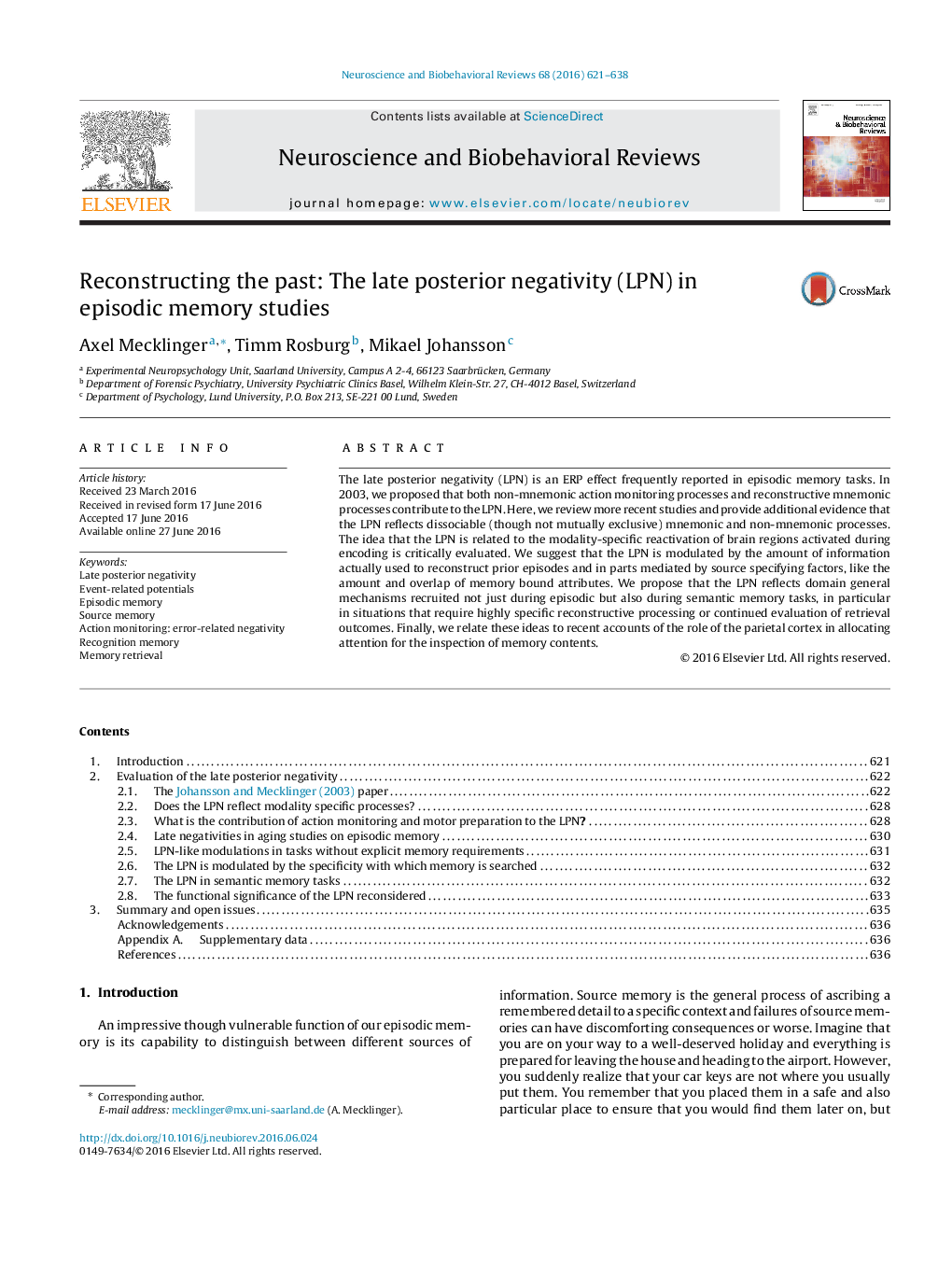| Article ID | Journal | Published Year | Pages | File Type |
|---|---|---|---|---|
| 7302979 | Neuroscience & Biobehavioral Reviews | 2016 | 18 Pages |
Abstract
The late posterior negativity (LPN) is an ERP effect frequently reported in episodic memory tasks. In 2003, we proposed that both non-mnemonic action monitoring processes and reconstructive mnemonic processes contribute to the LPN. Here, we review more recent studies and provide additional evidence that the LPN reflects dissociable (though not mutually exclusive) mnemonic and non-mnemonic processes. The idea that the LPN is related to the modality-specific reactivation of brain regions activated during encoding is critically evaluated. We suggest that the LPN is modulated by the amount of information actually used to reconstruct prior episodes and in parts mediated by source specifying factors, like the amount and overlap of memory bound attributes. We propose that the LPN reflects domain general mechanisms recruited not just during episodic but also during semantic memory tasks, in particular in situations that require highly specific reconstructive processing or continued evaluation of retrieval outcomes. Finally, we relate these ideas to recent accounts of the role of the parietal cortex in allocating attention for the inspection of memory contents.
Keywords
Related Topics
Life Sciences
Neuroscience
Behavioral Neuroscience
Authors
Axel Mecklinger, Timm Rosburg, Mikael Johansson,
